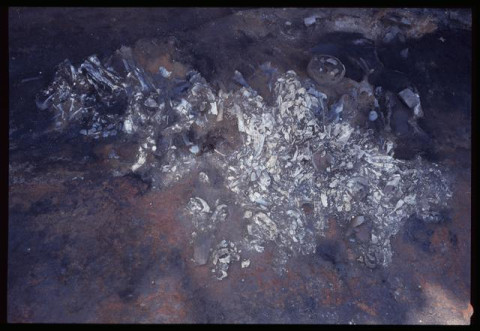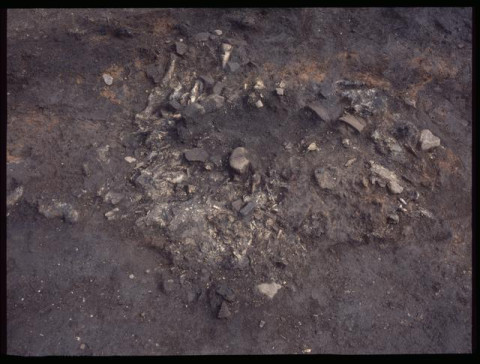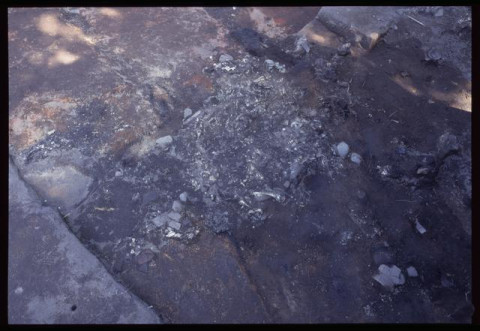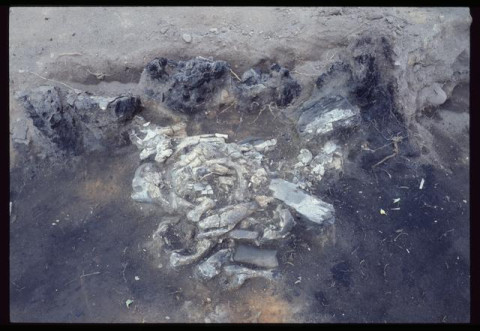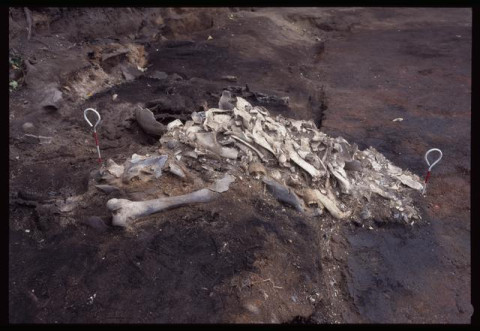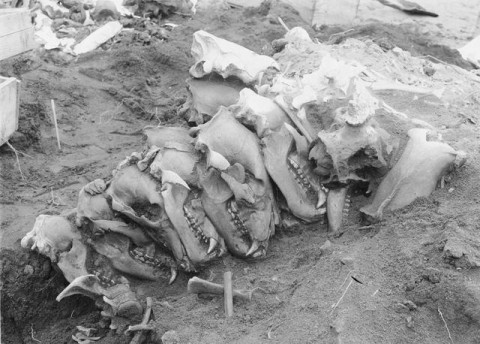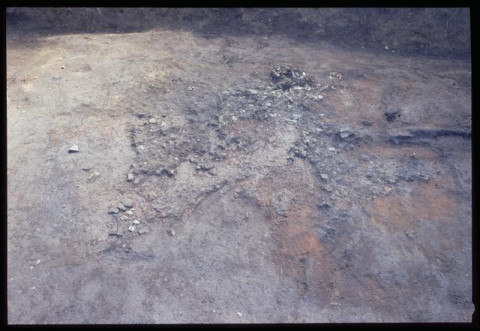7a号竪穴 骨塚a
No.12
報告書の図版番号/Plate No. of the report:Front1-2
解説:骨塚とは、竪穴住居内の奥壁部にクマの頭骨などを積み上げたオホーツク文化特有の遺構で、いわば「祭壇」といえる。この骨塚は道内最大規模のもので、クマ110体、エゾシカ69体、タヌキ30体、キツネ26体などの動物骨が頭骨や顎骨を中心に検出された。写真上が奥壁側。
comment:Bone mound, which is a pile of bones such as brown bear (Ursus arctos) skulls, is a typical feature of Okhotsk culture. Shown here in the corner opposite the opening of the U-shaped clay floor, the mound could be considered as an “altar.” This bone mound is the largest to have been found in Hokkaido, and animal bones, such as the craniums and jawbones of brown bears 110, Hokkaido deer (Cervus nippon yesoensis) 69, raccoon dogs (Nyctereutes procyonoides) 30, and foxes (Vulpes vulpes schrencki) 26 were found. The upper part of the photograph shows the innermost area of the pit house.
-
Faculty / Graduate SchoolGraduate School of Humanities and Sociology / Faculty of Letters
-
Original OwnerTokoro Research Laboratory, Graduate School of Humanities and Sociology, The University of Tokyo
-
Data Provider東京大学文学部「人文学における国際的地域・社会連携の推進」プログラム(東京大学未来社会協創推進本部登録プロジェクト)
-
Rightshttp://www.l.u-tokyo.ac.jp/t_chashi/jp/explanation4.html
-
Metadata Rightshttp://creativecommons.org/licenses/by/4.0/

Collection
-
Tokoro-chashi Sites:Excavation Photographs Digital Archives
Here photographs of the collection of the Tokoro Research Laboratory, documenting the excavation of the Tokoro-chashi Sites (Historic Tokoro Archaeological site), a historical site in Kitami City, are available.
